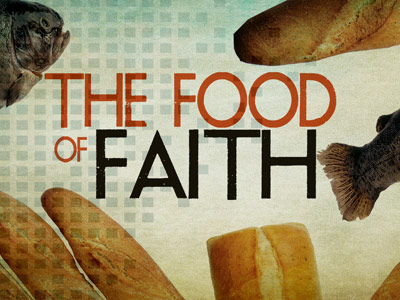-
Why Praise God For His Forgiveness?
Contributed by Efren V. Narido on Nov 28, 2017 (message contributor)
Summary: Do we also praise God for forgiving our sins? Do we regard ourselves “blessed” for the forgiveness we received from Him?
“Praise the LORD, O my soul; all my inmost being, praise his holy name. Praise the LORD, O my soul, and forget not all his benefits -- who forgives all your sins and heals all your diseases, who redeems your life from the pit and crowns you with love and compassion, who satisfies your desires with good things so that your youth is renewed like the eagle’s” (Ps. 103:1-5, NIV).
One of the many benefits we receive from God – He “forgives all your sins…” And we also read in Psalm 32:1, “Blessed is he whose transgressions are forgiven, whose sins are covered. “
Do we also praise God for forgiving our sins? Do we regard ourselves “blessed” for the forgiveness we received from Him?
God does not only heal, protect, provide, but also forgive. “When we were overwhelmed by sins, you forgave our transgressions. Blessed are those you choose and bring near to live in your courts! We are filled with the good things of your house, of your holy temple” (Ps. 65:3-4).
Do we sense an excellence how the Sovereign God forgave that the psalmist praised Him for it?
Before we answer that question, let’s first realize the value of the forgiveness we received from God. And we can begin to appreciate His forgiveness, if we acknowledge the enormity of our sins.
In the story of the rich young man (Matt. 19:16-24), the man told Jesus that he was able to obey the command of loving his neighbor (verses 18-20). Replied Jesus, "If you want to be perfect, go, sell your possessions and give to the poor, and you will have treasure in heaven. Then come, follow me” (verse 21).
“When the young man heard this, he went away sad, because he had great wealth” (verse 22).
Just like the man, we may think that we have not sinned and perfectly obeyed God in loving our neighbors, or perhaps just committed “lesser” sins. Actually, we are breaking the greatest of all commands – of loving God. We may not have “great wealth,” but we may have “great time,” “great ambition,” “great job,” “great family,” “great friends,” “great opportunity,” “great accomplishment,” “great idea,” “great belief,” “great fame,” even “great church,” etc. – that we value them more than the Great God!
In fact, we need to realize that there is nothing good lives in us, because of our sinful nature, as Paul wrote in Romans 7:18.
Truly, he who has hatred in his heart is just as guilty as the one who killed another person.
Next, we could also appreciate God’s forgiveness, if we realize the gravity of the penalty of our sins.
God’s Word declares in Luke 12:4-5, “I tell you, my friends, do not be afraid of those who kill the body and after that can do no more. But I will show you whom you should fear: Fear him who, after the killing of the body, has power to throw you into hell. Yes, I tell you, fear him.”
It was my strong belief before that because God is love, He will not allow you to suffer eternally in hell. And the reason that we need to fear Him is He can just “extinguish” both the physical body and soul. But is “killing” the soul and body in hell just like the killing of the body on earth?
If the punishment is just “extinguishment” of the body and soul in hell, why did Jesus said: “If your right eye causes you to sin, gouge it out and throw it away. It is better for you to lose one part of your body than for your whole body to be thrown into hell. And if your right hand causes you to sin, cut it off and throw it away. It is better for you to lose one part of your body than for your whole body to go into hell” (Matt. 5:29-30)? You could have your whole body in hell – but not your consciousness?
But God is NOT only love.
He is Holy. The loftiness of God in His Holiness warrants the heaviest penalty on those who rebel against Him. If I am a private in the army, for example, I would deserve greater penalty if I spank the Commander-In-Chief than if I just spank a fellow private. An offender of the Sovereign Heavenly “Commander” should be punished not just with “death penalty.” It would be an “insult” to His Holiness!
In God’s Holiness, His Mercy and His Wrath complimented. In His Holiness, His Love and Judgment blended. In His Holiness, His Grace and His Recompense are both exalted.
In His Holiness, He allowed the rebellious Israelites to eat their children and the children to eat their fathers (Ezek. 5:10). He could also allow the unbelievers to be tormented for eternity.

 Sermon Central
Sermon Central



